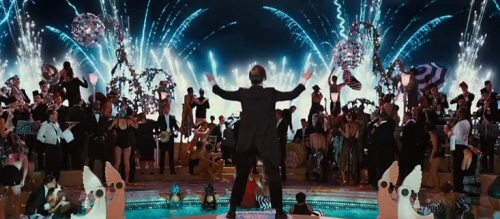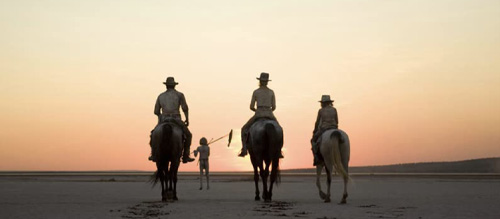Baz Luhrmann Films Ranked
Baz Luhrmann is one of the contemporary era’s most exciting, creative, and entertaining directors. Each of his films display momentous forces of gravitas and costumery, almost permeating beyond the screen and forcing each of us to have a great time.
Before the Australian-born director achieved his swell success as an auteur, he starred alongside Judy Davis in Winter of Our Dreams (1981), a low-budget Australian drama. With his paycheck, he set up a production enterprise, The Bond Theatre Company, with Nellee Hooper and Gabrielle Mason. After a few years of success in theatre, Luhrmann went on to create some of cinema’s most extravagant films which have won countless BAFTAs and Academy Awards.
At the apex of Luhrmann’s filmography is a sense of all-encompassing immersion. In many of his films, it does not feel like a ‘movie’, it feels like an experience.
In this edition of Ranked, we at The Film Magazine are comparing and contrasting the six feature directorial efforts of this great and influential filmmaker to judge which films are the most impactful, important, artistically expressive, culturally observant and critically beloved, for this: the Baz Luhrmann Films Ranked.
Follow @thefilmagazine on Twitter.
6. The Great Gatsby (2013)

F. Scott Fitzgerald’s novel “The Great Gatsby” (1925) is a grandiose tale of love, passion, and lingering devotion. It’s also about classism, gender, and race. Above all, it is considered to be a brutal and pessimistic take on the American Dream. Many adaptions have been made over time in every sector, but none have achieved the same romantic yet sardonic tone that Luhrmann achieved with his take on the classic book.
The film is dripping in a whimsical light, with every scene seeming to sparkle with luxury, highlighting the social divide seen throughout its original source. Quite a lot of the narrative falls upon the mysterious Jay Gatsby (Leonardo DiCaprio), a wealthy tycoon whose lavish soirees are at the focal point of Luhrmann’s attention. Gatsby’s manor is adorned with diamonds, coupe champagne glasses, and an ambitious score that contrasts against the roaring 1920s aesthetic. As it will be revealed, Luhrmann revels in the modernisation of bygone eras, remixing vintage with a latter-day style. The film dresses the party scenes (as well as a multitude of other sequences) with incredibly high-definition camerawork, presenting the most stunning wide shots before swiftly transforming the frame with vibrant energy, making use of the ‘dolly’ angle’s flexibility.
However, there are a few setbacks that fail to make The Great Gatsby Luhrmann’s greatest cinematic achievement. The film has an awful lot of style, but its substance lacks in comparison to Luhrmann’s other work. The narrative is rife with theology, on top of its already heavy love story – it’s rather a lot to digest. When combining the magnitude of the imagery with the extensive plot, it can be hard to fully embrace every single detail. It tests the patience of fans of the original novel while not being inviting enough for more casual audiences, proving that a heap of flair isn’t all that is needed when adapting an important piece of work.
5. Australia (2008)

Baz Luhrmann’s Australia made a near clean sweep at awards seasons, with many praising the stunning outback landscapes captured on film, bringing a sense of filmic euphoria to the eyes. Lying underneath the glimmer of striking scenery are some truly great performances by Aussie royalty, Hugh Jackman and Nicole Kidman, who hit every mark with such grace and passion. Yet when it comes to Australia’s narrative, something dark lurks, haunting the screen with a harsh truth.
The film delves into political dynamics, with Luhrmann dipping into themes such as colonisation, war and sacrifice. Whilst Luhrmann’s work thrives in its garishness and enchanting aesthetics, Australia proves that his work is far from shallow. The film reveals harsh truths that are not easy to come to terms with. And rightly so. Luhrmann unveils the abhorrently cruel reality that Aboriginals were forced to live within, with much of the film focusing on Nullah (Brandon Walters), a young boy with an Aboriginal mother and a white father. During the film’s time and setting, part-white Aboriginal youth were captured by the authorities to spiritually rid their ethnic heritage. The disgusting practice was only abolished in the early 1970s.
The 2hr 45min runtime may test the patience of some, but Australia is a confronting watch that digs right into its emotional tone to provoke, alert, and ultimately fascinate.
Recommended for you: 10 Films from the Past 10 Years To Teach You About White Privilege

